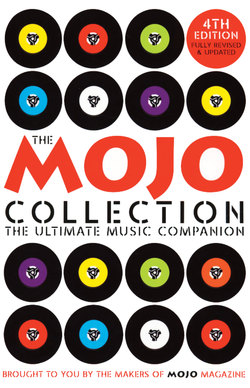Читать книгу The Mojo Collection - Various Mojo Magazine - Страница 178
На сайте Литреса книга снята с продажи.
Chicago Transit Authority Chicago Transit Authority A benchmark for brass and guitar-fuelled jazz rock.
ОглавлениеRecord label: Columbia
Produced: James William Guercio
Recorded: CBS studios, New York; January 27–30, 1969
Released: April 28, 1969 (US) September 1969 (UK)
Chart peaks: 9 (UK) 17 (US)
Personnel: Peter Cetera (v); Terry Kath (g, v); Robert Lamm (k, v); James Pankow (tb); Daniel Seraphine (d); Walter Parazaider (woodwind; v) Lee Loughnane (t, v); Fred Catero (e)
Track Listing: Introduction; Does Anybody Really Know What Time It Is? (S); Beginnings (S); Questions 67 And 68 (S); Listen; Poem 58; Free Form Guitar; South California Purples; I’m A Man; Prologue August 29, 1968; Someday August 29, 1968; Liberation
Running time: 77.43
Current CD: Rhino 8122761712
Further listening: Chicago II (1970)
Further reading: ‘Chicago At Carnegie Hall’, from Psycotic Reactions And Carburetor Dung (Lester Bangs, 1988); www.chicagotheband.com
Download: HMV Digital
At the tail end of the ’60s, rock big-band Chicago Transit Authority were peers and label mates with Santana, Janis Joplin and Sly And The Family Stone. The band had honed their craft playing up to six sets a night on the bar band circuit. Based in Chicago and its suburbs, they had begun as Big Thing, changing their name to Chicago Transit Authority in May 1967. In August they were spotted by manager James William Guercio, who was producing local Top 40 band The Buckinghams and would cut the breakthrough second album by Blood Sweat And Tears. Robert Lamm did most of the writing and Jim Pankow most of the arranging on their debut album, but Guercio played a crucial role, imposing tightness and economy.
For all the indulgence soon to be associated with rock LPs – not least Chicago’s – their first album was recorded in just two weeks. It contains some great musical moments: the Forever Changes-style Latin brass coda at the end of Beginnings, Kath’s guitar sustain as he comes in after the lengthy percussion break in I’m A Man – his guitar runs are exemplary throughout when he’s augmenting, not soloing. Then there’s the ‘The whole world is watching’ chant recorded from the demonstration at the 1968 Democratic Convention in Chicago. No band that learned its chops at the same time as Mayor Daly’s law enforcers were cracking heads could have emerged from that bloody environment without comment – a great McLuhanesque soundbite from the days when it really did look like the revolution might be televised.
It hasn’t all worn so well. Kath and Lamm’s mannered rock growls and Cetera’s wavery upper register do, in truth, grate a bit over the four sides. Strange to consider that their harmonies sounded sublime at the time. In essence, that’s Chicago. A greater-than-the-sum-of-their-parts outfit who, in their early days at least, soared majestically. Their second album was equally inspired, but dedicating it ‘to the revolution’ whilst being promoted with the big bucks of the CBS rock machine merely aroused the ire of the rock press and the band’s early critical acclaim rapidly wilted. Bludgeoning a fresh and inventive formula to death by issuing three consecutive double albums, and a live quadruple, in the space of two years didn’t help matters either – so remember them this way.
